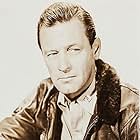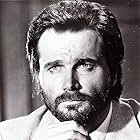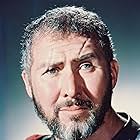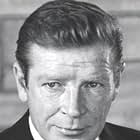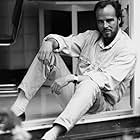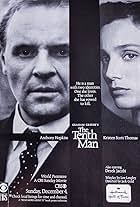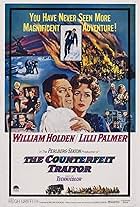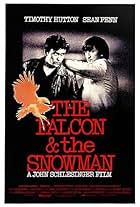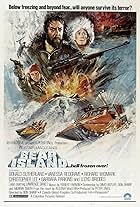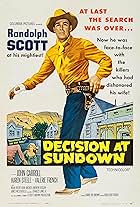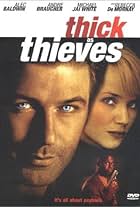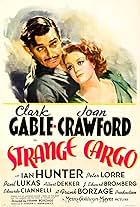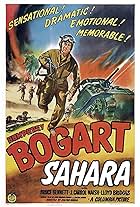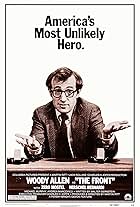IMDb RATING
6.3/10
1.3K
YOUR RATING
A dramatization of the incident in 1972 when Arab terrorists broke into the Olympic compound in Munich and murdered eleven Israeli athletes.A dramatization of the incident in 1972 when Arab terrorists broke into the Olympic compound in Munich and murdered eleven Israeli athletes.A dramatization of the incident in 1972 when Arab terrorists broke into the Olympic compound in Munich and murdered eleven Israeli athletes.
- Nominated for 2 Primetime Emmys
- 3 nominations total
Djamchid 'Jim' Soheili
- Touny
- (as Djamchid Soheili)
- Director
- Writers
- All cast & crew
- Production, box office & more at IMDbPro
Storyline
Did you know
- TriviaAlthough it's not mentioned in this movie, the terrorist also demanded the release of Andreas Baader and Ulrike Meinhof, founders of the German Red Army Faction, who were being held in German prisons.
- GoofsThe actress playing Golda Meir speaks English with a very thick German accent. The real Golda Meir grew up in Milwaukee, Wisconsin, and spoke English with a standard American accent.
- Quotes
Chief of Police Manfred Schreiber: [Shocked when the terrorists take the helicopter pilots prisoner] What the hell are they doing?
General Zvi Zamir: [Bitterly] They are Arab terrorists. They are breaking their word.
- ConnectionsFeatured in Prefontaine (1997)
- SoundtracksOsse Shalom
By Nurit Hirsch (as Nurit Hirsh)
Featured review
Released only one Olympic cycle after the actual events occurred during the 1972 Olympics, this film documents many of the behind-the-scenes events that happened while the world watched the horrible drama unfold. As a big fan of the Olympics, I was watching as news stories interrupted the peaceful competition to explain the unthinkable had happened.
Terrorists had invaded the Olympic compound--the ultimate symbol of peaceful coexistence--and killed Israeli athletes, taking others hostage as leverage to demand the release of comrades held in captivity. As a viewer, I vividly remember the shadowy image of a man on a balcony, a man who threatened the Olympic principles and the world at large, but somehow, though he was visible, was beyond the reach of retaliation. It was frustrating and tragic, but hostages' lives were in the balance.
This film was no doubt an attempt to fill in the blanks for many people who only saw those shadowy images from a distance. But is it more than a documentation? Is it a warning to the world or to those who would use terrorism for their political purposes? Or a tribute, perhaps, to those who did their best to tragic events that unfolded or those who were the victims of those who promote the initiation of violence (even against civilians) as a means to an end?
The narrative seems to bear few embellishments to the actual events of 1972. Hostage situations--with all of the accompanying negotiations and strategizing--are dramatic enough. William Holden, as chief of police, adequately portrays a man who will forever second guess his decisions. The leader of the terrorists (Franco Nero), becomes more than a shadowy figure as the film shows moments when his humanity is revealed. Presented with the option to walk away from further bloodshed, he says, "And have people think I am a coward?" When I first heard this line in 1976, I thought it referred to the world at large, but now I wonder if he was thinking about others who sympathized with his world view.
Terrorists had invaded the Olympic compound--the ultimate symbol of peaceful coexistence--and killed Israeli athletes, taking others hostage as leverage to demand the release of comrades held in captivity. As a viewer, I vividly remember the shadowy image of a man on a balcony, a man who threatened the Olympic principles and the world at large, but somehow, though he was visible, was beyond the reach of retaliation. It was frustrating and tragic, but hostages' lives were in the balance.
This film was no doubt an attempt to fill in the blanks for many people who only saw those shadowy images from a distance. But is it more than a documentation? Is it a warning to the world or to those who would use terrorism for their political purposes? Or a tribute, perhaps, to those who did their best to tragic events that unfolded or those who were the victims of those who promote the initiation of violence (even against civilians) as a means to an end?
The narrative seems to bear few embellishments to the actual events of 1972. Hostage situations--with all of the accompanying negotiations and strategizing--are dramatic enough. William Holden, as chief of police, adequately portrays a man who will forever second guess his decisions. The leader of the terrorists (Franco Nero), becomes more than a shadowy figure as the film shows moments when his humanity is revealed. Presented with the option to walk away from further bloodshed, he says, "And have people think I am a coward?" When I first heard this line in 1976, I thought it referred to the world at large, but now I wonder if he was thinking about others who sympathized with his world view.
Details
- Release date
- Country of origin
- Languages
- Also known as
- Twenty-One Hours at Munich
- Filming locations
- Production company
- See more company credits at IMDbPro
Contribute to this page
Suggest an edit or add missing content









